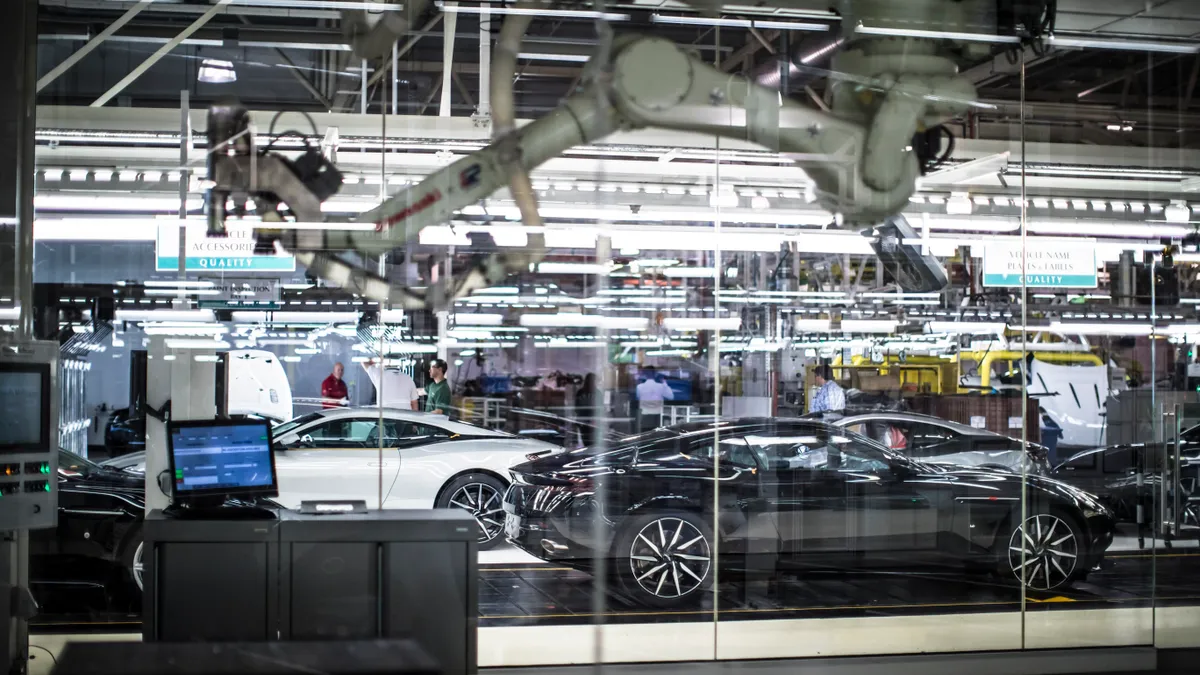Dive Brief:
- Aston Martin is considering transporting more car components by air and changing the seaports it uses for parts to avoid Brexit friction, the automaker's Chief Executive Andy Palmer told Reuters.
- The British automaker currently brings in several parts from the Port of Dover, which is just 25 miles from the Port of Calais in France. Several firms are concerned the port will struggle to cope with customs checks, post-Brexit.
- Palmer said changing ports or transporting by air would add costs for Aston Martin. "Whilst it’s relatively expensive, [air transport] is probably our primary backup," he told Reuters.
Dive Insight:
Just five months remain until the U.K. exits the European Union, and businesses are getting anxious as negotiators have yet to reach a deal on trade between the two blocs.
The complex nature of automotive supply chains puts them particularly at risk as Brexit unfolds. With new customs regulations coming into place, parts arriving into ports could face bottlenecks, ultimately delaying production on the factory floor. Manufacturers may face new tariffs and taxes as well, creating disruptions in cash flow.
Fearing upcoming disruption, BMW decided it will close its plant in Oxford for one month starting April 1, 2019, the first weekday after the Brexit deadline.
Aston Martin's Palmer acknowledged changing ports or shipping parts by air will be more costly than continuing to import through the Port of Dover. "But it’s cheaper than not building cars," he told Reuters.
A study from IHS Automotive found Brexit could cost automakers 2.8 million sales over the next two years as the manufacturers rework production and their supply chains.
The Society of Motors Manufacturers and Traders (SMMT), which supports the U.K. auto industry, launched a Brexit Readiness Programme earlier this month to help protect automotive supply chains. "Not all will have the resource to prepare adequately for the dramatic and immediate change to trading conditions between the UK and EU in the event of a 'no-deal' Brexit," the society said.
While the auto industry in the U.K. and EU will certainly take a hit, it's not the only industry facing challenges. Companies transporting perishable or time-sensitive shipments will be impacted by any sort of delays at ports.
Drug companies are preparing contingencies in case of a no deal scenario. It could take U.K. food and beverage companies up to five years to successfully restructure their supply chains.














